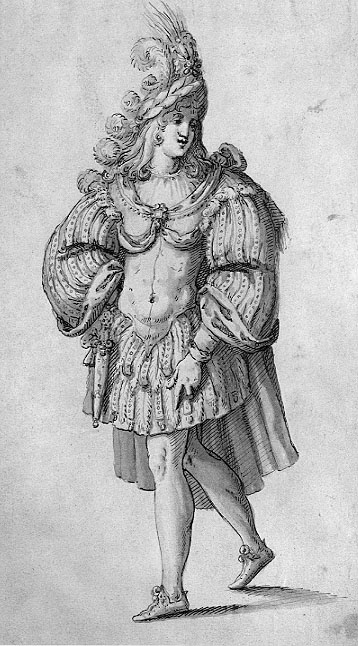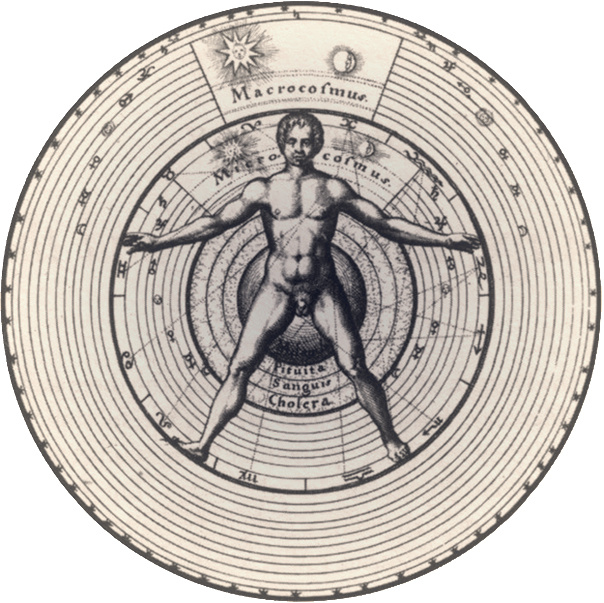|
1629 In Literature
This article contains information about the literary events and publications of 1629. Events *January – Pedro Calderón de la Barca and his friends break into a convent in an attempt to seize Pedro de Villegas, who had stabbed Calderón's brother. *April 6 – Tommaso Campanella is released from custody in Rome, and gains the confidence of Pope Urban VIII. *July – Richard James (scholar), Richard James lends Oliver St John a manuscript tract on the bridling of parliaments which was written in 1612 by Sir Robert Dudley (explorer), Robert Dudley, titular Duke of Northumberland. St John circulates it among parliamentary supporters, and James is arrested as a result. *September – Pierre Corneille brings his first play, ''Mélite'' to a group of travelling actors. *November 22 – The King's Men (playing company), King's Men perform ''Othello'' at the Blackfriars Theatre in London. *''unknown dates'' **The first known performance is given at the Corral de comedias de Almagro in ... [...More Info...] [...Related Items...] OR: [Wikipedia] [Google] [Baidu] |
Inigo Jones
Inigo Jones (15 July 1573 – 21 June 1652) was an English architect who was the first significant Architecture of England, architect in England in the early modern era and the first to employ Vitruvius, Vitruvian rules of proportion and symmetry in his buildings. As the most notable architect in England, Jones was the first person to introduce the classical architecture of Rome and the Italian Renaissance to England. He left his mark on London by his design of single buildings, such as the Queen's House which is the first building in England designed in a pure classical style, and the Banqueting House, Whitehall, as well as the layout for Covent Garden square which became a model for future developments in the West End. He made major contributions to Scenic design, stage design by his work as a theatrical designer for several dozen masques, most by royal command and many in collaboration with Ben Jonson. Early life and career Beyond that he was born in Smithfield, London, Smit ... [...More Info...] [...Related Items...] OR: [Wikipedia] [Google] [Baidu] |
Richard Brome
Richard Brome ; (c. 1590? – 24 September 1652) was an English dramatist of the Caroline era. Life Virtually nothing is known about Brome's private life. Repeated allusions in contemporary works, like Ben Jonson's '' Bartholomew Fair'', indicate that Brome started out as a servant of Jonson, in some capacity. Scholars have interpreted the allusions to mean that Brome may have begun as a menial servant but later became a sort of secretary and general assistant to the older playwright. A single brief mention of his family's need seems to show that he had a wife and children and struggled to support them. He may have had some experience as a professional actor: a 1628 warrant lists him as a member of the Queen of Bohemia's Men. Yet he had already started writing for the stage by this date. An early collaboration, ''A Fault in Friendship'' (now lost) was licensed in 1623 for Prince Charles's Men; a 1629 solo Brome effort, ''The Lovesick Maid'' (also lost), was a success for t ... [...More Info...] [...Related Items...] OR: [Wikipedia] [Google] [Baidu] |
Richard Sibbes
Richard Sibbes (or Sibbs) (1577–1635) was an Anglican theologian. He is known as a Biblical exegete, and as a representative, with William Perkins and John Preston, of what has been called "main-line" Puritanism because he always remained in the Church of England and worshiped according to the Book of Common Prayer. Life He was born in Tostock, Suffolk, where his father was a wheelwright; other sources say Sudbury. After attending Bury St Edmunds Grammar School, he attended St John's College, Cambridge from 1595. He was lecturer at Holy Trinity Church, Cambridge, from 1610 or 1611 to 1615 or 1616. It was erroneously held by 18th and 19th century scholars that Sibbes was deprived of his various academic posts on account of his Puritanism. In fact he was never deprived of any of his posts, due to his ingenuity of the system. He was then preacher at Gray's Inn, London, from 1617, returning to Cambridge as Master of Catherine Hall in 1626, without giving up the London posit ... [...More Info...] [...Related Items...] OR: [Wikipedia] [Google] [Baidu] |
Paul Laymann
Paul Laymann (1574 – 13 November 1635 or 1632Historia Górnego Śląska. Polityka, gospodarka i kultura europejskiego regionu. Christine van Eickels, Sławomir Puk, ) was an Austrian Jesuit and moralist. Biography Laymann was born at Arzl, near Innsbruck. After studying jurisprudence at Ingolstadt, he entered the Society of Jesus there in 1594, was ordained priest in 1603, taught philosophy at the University of Ingolstadt from 1603-9, moral theology at the Jesuit house in Munich from 1609–25, and Canon law at the University of Dillingen from 1625-32. He died of the plague at Konstanz. Works Laymann was one of the greatest moralists and canonists of his time, and a copious writer on philosophical, moral, and juridical subjects. The most important of his thirty-three literary productions is a compendium of moral theology, (Munich, 1625), of which a second and enlarged edition in six volumes appeared in 1626 at the same place. Until the second quarter of th ... [...More Info...] [...Related Items...] OR: [Wikipedia] [Google] [Baidu] |
Robert Fludd
Robert Fludd, also known as Robertus de Fluctibus (17 January 1574 – 8 September 1637), was a prominent English Paracelsian physician with both scientific and occult interests. He is remembered as an astrologer, mathematician, cosmologist, Qabalist, and Rosicrucian. Fludd is best known for his compilations in occult philosophy. He had a celebrated exchange of views with Johannes Kepler concerning the scientific and hermetic approaches to knowledge. Early life He was born at Milgate House, Bearsted, Kent, on 17 January 1573/4. He was the son of Sir Thomas Fludd, a high-ranking governmental official (Queen Elizabeth I's treasurer for war in Europe), and Member of Parliament. His mother was Elizabeth Andrews Fludd. A collage of 12 Coats of Arms of Fludd ancestors are shown in the painting above his right shoulder. His paternal arms goes back to Rhirid Flaidd whose name originates from Welsh meaning bloody or red wolf. Education He entered St John's College, Oxfo ... [...More Info...] [...Related Items...] OR: [Wikipedia] [Google] [Baidu] |
Fasciculus Chemicus
''Fasciculus Chemicus'' or ''Chymical Collections. Expressing the Ingress, Progress, and Egress, of the Secret Hermetick Science out of the choicest and most famous authors'' is an anthology of alchemical writings compiled by Arthur Dee (1579–1651) in 1629 while resident in Moscow as chief physician to Czar Michael I of Russia. ''Fasciculus Chemicus'' was revised by Dee sometime between 1631 and 1633 and translated from Latin into English by Elias Ashmole in 1650 under the anagrammatic pseudonym of "James Hasolle" (by substitution of the letter J for I). Arthur Dee however, was displeased with Ashmole's translation, and wrote to him: :''I am sorry you or any man should take pains to translate any book of that art into English, for the art is vilified so much already by scholars that do daily deride it, in regard they are ignorant of the principles. How then can it any way be advanced by the vulgar? But to satisfy your question, you may be resolved that he who wrote Euclid's ... [...More Info...] [...Related Items...] OR: [Wikipedia] [Google] [Baidu] |
Arthur Dee
Arthur Dee (13 July 1579 – September or October 1651) was a physician and alchemist. He became a physician successively to Tsar Michael I of Russia and to King Charles I of England. Youth Dee was the eldest son of John Dee by his third wife, Jane, daughter of Bartholomew Fromond of East Cheam, Surrey. He was born at Mortlake on 13 July 1579. As a child he accompanied his father on travels through Germany, Poland and Bohemia. After his return to England he was placed at Westminster School, on 3 May 1592, under the tuition of Edward Grant and William Camden. Anthony Wood was informed that he subsequently studied at Oxford, but he took no degree and it is not known which college he attended. Medicine Settling in London with the intention of practising "physic" (medicine), he exhibited at the door of his house a list of medicines which were said to be certain cures for many diseases. The censors of the College of Physicians summoned him to appear before them, but it is no ... [...More Info...] [...Related Items...] OR: [Wikipedia] [Google] [Baidu] |
John Amos Comenius
John Amos Comenius (; ; ; ; Latinized: ''Ioannes Amos Comenius''; 28 March 1592 – 15 November 1670) was a Czech philosopher, pedagogue and theologian who is considered the father of modern education. He served as the last bishop of the Unity of the Brethren (direct predecessor of the Moravian Church) before becoming a religious refugee and one of the earliest champions of universal education, a concept eventually set forth in his book ''Didactica Magna''. As an educator and theologian, he led schools and advised governments across Protestant Europe through the middle of the seventeenth century. Comenius introduced a number of educational concepts and innovations including pictorial textbooks written in native languages instead of Latin, teaching based in gradual development from simple to more comprehensive concepts, lifelong learning with a focus on logical thinking over dull memorization, equal opportunity for impoverished children, education for women, and universal and ... [...More Info...] [...Related Items...] OR: [Wikipedia] [Google] [Baidu] |
Philipp Clüver
Philipp Clüver (also Klüwer, Cluwer, or Cluvier, Latinized as Philippus Cluverius) (1580 – 31 December 1622) was an Early Modern German geographer and historian. Life Clüver was born in Danzig (Gdańsk), in Royal Prussia, a province of the Kingdom of Poland. After spending some time at the Polish court of Sigismund III Vasa, he began the study of law at the University of Leiden (Dutch Republic), but soon he turned his attention to history and geography, which were then taught there by Joseph Scaliger. Clüver received science education from his father, who was ''Münzmeister'' at Danzig (coin master), but when Clüver went into different studies, his father stopped supporting his studies. He therefore travelled from Leiden across Hungary to Bohemia, where he did military service for a few years. While in Bohemia, he translated into Latin a defense by Baron Popel Lobkowitz, who was imprisoned. Upon his return to Leiden, he faced sanctions by the imperial ( Hab ... [...More Info...] [...Related Items...] OR: [Wikipedia] [Google] [Baidu] |
Balthazar Baro
Balthazar Baro (15961650) was a French poet, playwright and romance (heroic literature), romance-writer. Biography Baro was born in Valence, Drôme, to a professor at the university of Valence. He studied at Tournon-sur-Rhône then at Valence, where he gained his law doctorate in 1615, and became secretary to Honoré d'Urfé, whom he had met when they attended the same collège in Tournon-sur-Rhône, Tournon, he published Urfé's ''L'Astrée'' and wrote a fifth book for it himself (from his master's notes) in 1628. Coming to Paris, he attended on Marie de Rohan, Madame de Chevreuse, sworn enemy of cardinal Richelieu, but even so the immense success of ''L'Astrée'' gained him entry to the Académie française in 1636. After being gentleman to Marie de Bourbon, duchesse de Montpensier, Mademoiselle de Montpensier, he held two jobs towards the end of his life, that of procurer to the présidial de Valence and that of treasurer of France at Montpellier. He died in Paris. Works Baro' ... [...More Info...] [...Related Items...] OR: [Wikipedia] [Google] [Baidu] |


